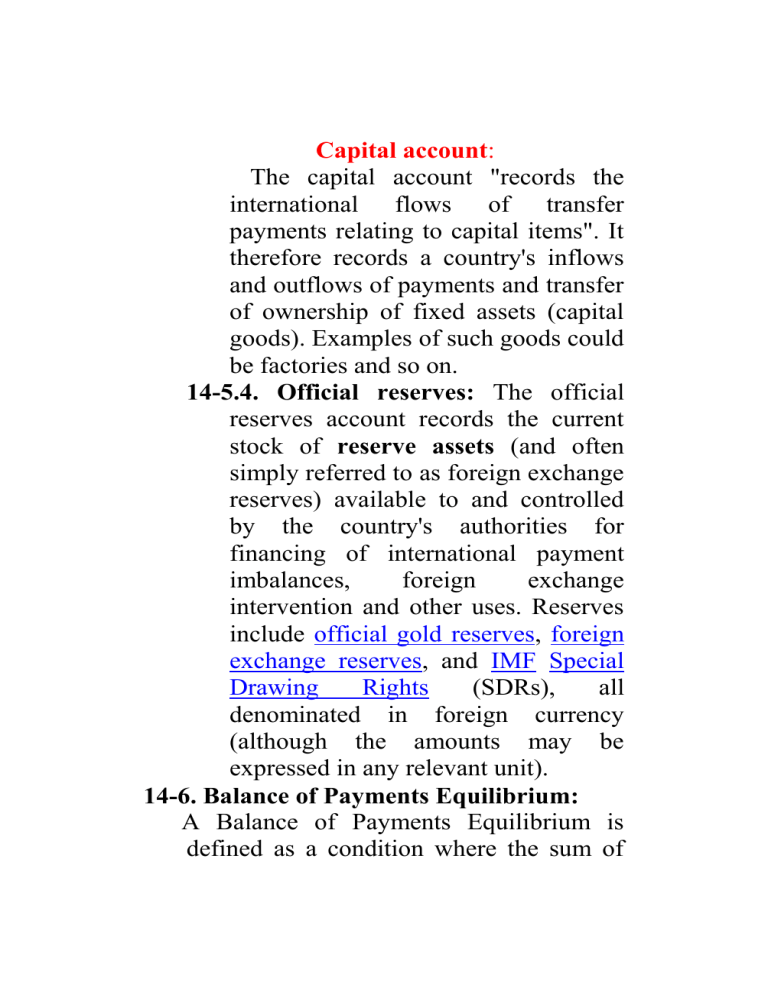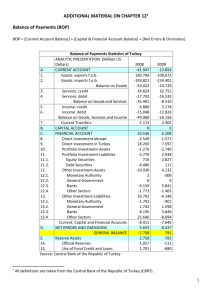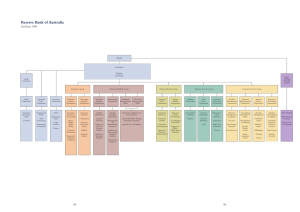Capital account The capital account "records the international flows

Capital account :
The capital account "records the international flows of transfer payments relating to capital items". It therefore records a country's inflows and outflows of payments and transfer of ownership of fixed assets (capital goods). Examples of such goods could be factories and so on.
14-5.4. Official reserves: The official reserves account records the current stock of reserve assets (and often simply referred to as foreign exchange reserves) available to and controlled by the country's authorities for financing of international payment imbalances, foreign exchange intervention and other uses. Reserves include official gold reserves , foreign exchange reserves , and IMF Special
Drawing Rights (SDRs), all denominated in foreign currency
(although the amounts may be expressed in any relevant unit).
14-6. Balance of Payments Equilibrium:
A Balance of Payments Equilibrium is defined as a condition where the sum of
debits and credits from the Current
Account and the Financial Account equal to zero; in other words, equilibrium is where:
Current Account + Financial Account = 0
This is a condition where there are no changes in Official Reserves. When there is no change in Official Reserves, the balance of payments may also be confirmed as follows:
Current Account = Financial Account
Questions:
1.
Give the definition of the Balance of payments?
2.
What the Balance of Payments Identity ?
3.
List the Components of the balance of payments?
4.
List the Components of Current account?
5.
List the Components of Financial account ?
6.
When the Balance of Payments be
Equilibrium?
7.
Translate the following paragraph:-
Balance of payments
The balance of payments (BOP) is an accounting of a country's international transactions for a particular time period.
Any transaction that causes money to flow into a country is a credit to its BOP account, and any transaction that causes money to flow out is a debit.
Every international transaction results in a credit and a debit. Transactions that cause money to flow into a country are credits, and transactions that cause money to leave a country are debits. For instance, if someone in England buys a
South Korean stereo, the purchase is a debit to the British account and a credit to the South Korean account. If a
Brazilian company sends an interest payment on a loan to a bank in the
United States, the transaction will represent a debit to the Brazilian BOP account and a credit to the United States
BOP account.


